CLAT Exam > CLAT Notes > Current Affairs & General Knowledge > Lists of First Men in India
Lists of First Men in India | Current Affairs & General Knowledge - CLAT PDF Download
Male Personalities one who revolutionaries ideas shaped the Indian Society by contributing something new which was ever contributed by any Indians. The list is composed of all those human explorations and adventures, expeditions, discoveries and inventions which were made first time in the history of India.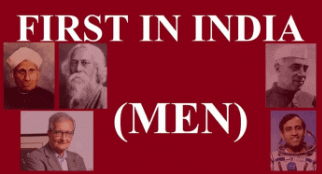
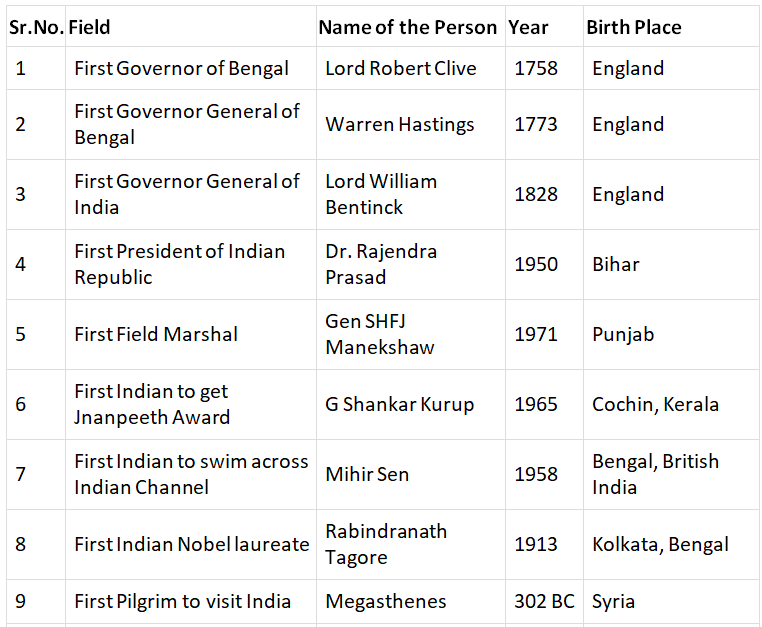
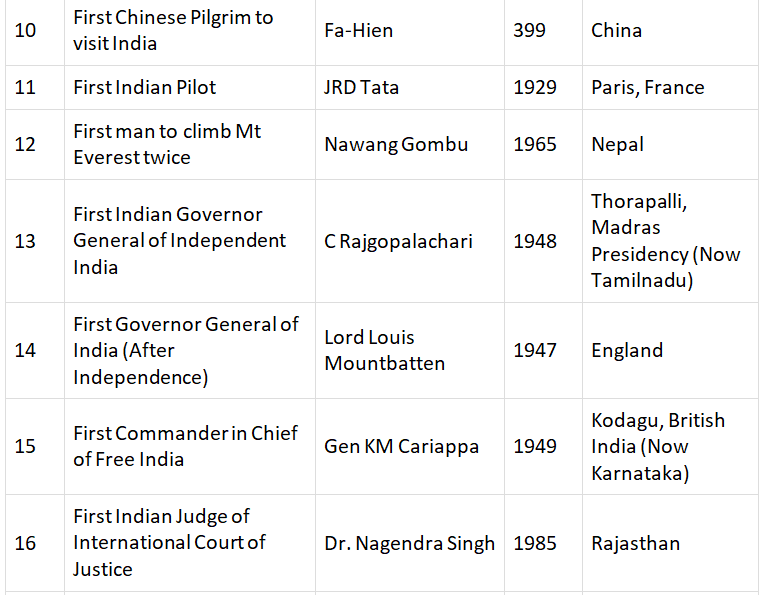
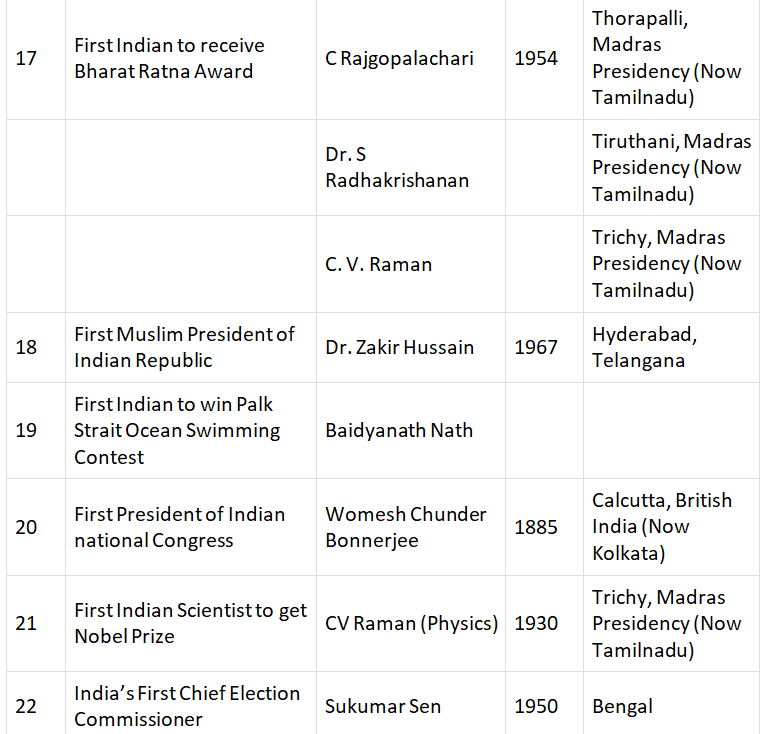
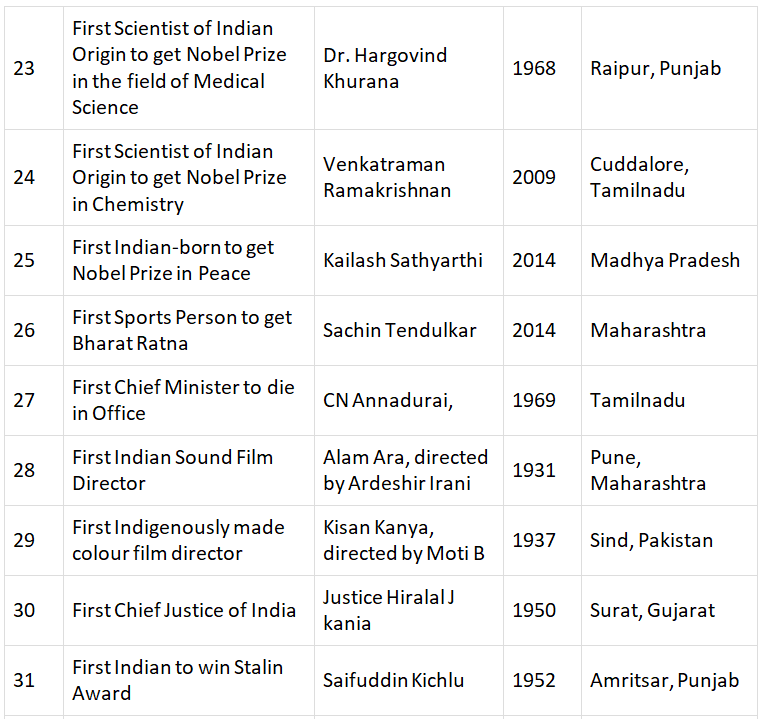
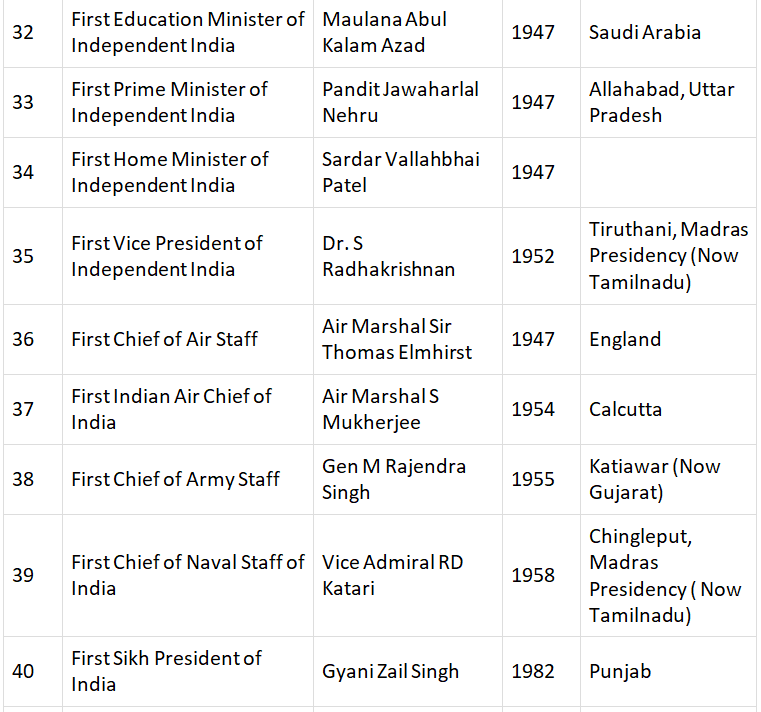
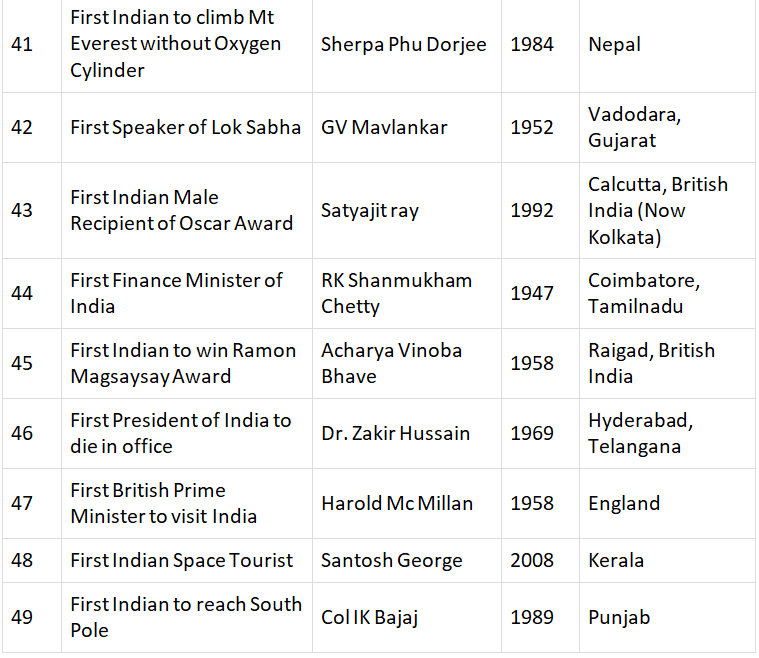
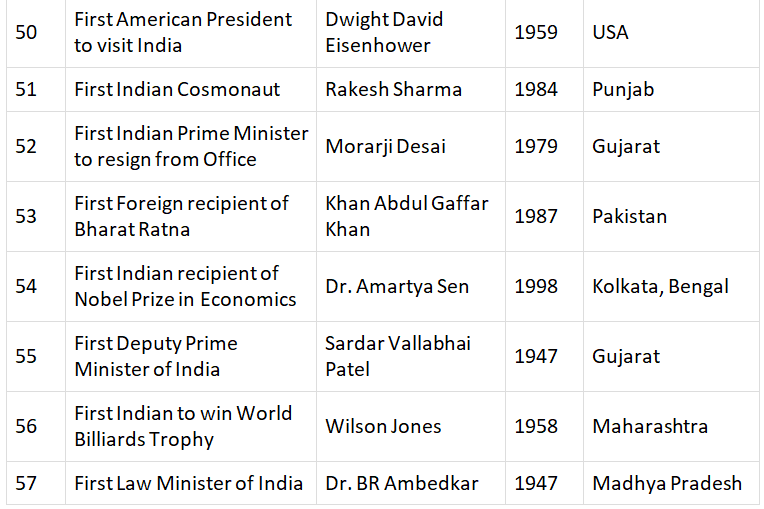
The document Lists of First Men in India | Current Affairs & General Knowledge - CLAT is a part of the CLAT Course Current Affairs & General Knowledge.
All you need of CLAT at this link: CLAT
|
98 videos|961 docs|33 tests
|
FAQs on Lists of First Men in India - Current Affairs & General Knowledge - CLAT
| 1. Who were the First Men in India? |  |
Ans. The First Men in India refers to the indigenous population that inhabited the Indian subcontinent thousands of years ago. They are believed to be the descendants of the early humans who migrated from Africa.
| 2. What is the significance of the First Men in India? |  |
Ans. The First Men in India hold immense significance as they laid the foundation of the country's rich cultural and ethnic diversity. Their traditions, languages, and customs have influenced the subsequent generations, shaping the unique identity of the Indian civilization.
| 3. How can we identify the descendants of the First Men in India today? |  |
Ans. Identifying the descendants of the First Men in India today is a complex task. However, anthropologists and geneticists study various factors such as genetic markers, physical characteristics, and linguistic similarities to establish probable connections and trace lineages.
| 4. What are some of the notable tribes or communities considered to have descended from the First Men in India? |  |
Ans. Several tribes and communities in India are believed to have descended from the First Men. Some notable examples include the Adivasis, such as the Santhals, Gonds, and Bhils, who have preserved their ancient traditions and continue to live in various regions across the country.
| 5. Are there any ancient artifacts or archaeological sites that provide evidence of the First Men in India? |  |
Ans. Yes, there are numerous archaeological sites in India that have provided valuable insights into the lives of the First Men. Some notable examples include the Bhimbetka rock shelters in Madhya Pradesh, which feature prehistoric cave paintings, and the Indus Valley Civilization sites, such as Mohenjo-daro and Harappa, which offer glimpses into an advanced urban civilization that thrived over 4,000 years ago.
Related Searches
















